That sounds absolutely amazing! I’d play the hell out of it mate! Permission granted, ask me if you need anything!Can I make a TCTmod based on this?
You are using an out of date browser. It may not display this or other websites correctly.
You should upgrade or use an alternative browser.
You should upgrade or use an alternative browser.
Triple Calamity: What if the Three Most Important Men in the Executive Branch Died in One Night?
- Thread starter Mr.Q
- Start date
Also, do you have a discord account? I do have something want to confirmWhich election most interests you?
Yes I do! Here I’ll send it to you.Also, do you have a discord account? I do have something want to confirm
Next chapter will come out tomorrow, handling the Foreign policy stuff of the Garfield Presidency.
Hopefully tomorrow but maybe Monday you'll get the domestic stuff.
Tuesday or Wednesday will be the midterms.
By Friday you should have a chapter on the new admissions to the Union and a chapter of the rest of the Garfield term.
I'm going to be busy next weekend but I will try my best to get the 1892 conventions out and ready then and the 1892 election sometime that week!
Hopefully tomorrow but maybe Monday you'll get the domestic stuff.
Tuesday or Wednesday will be the midterms.
By Friday you should have a chapter on the new admissions to the Union and a chapter of the rest of the Garfield term.
I'm going to be busy next weekend but I will try my best to get the 1892 conventions out and ready then and the 1892 election sometime that week!
The Garfield Cabinet
The Garfield Administration
| Vice President | Frederick Dent Grant |
| Secretary of State | Rutherford B. Hayes |
| Secretary of the Treasury | William Windom (Until April 1890), James B. Weaver (until August 1890, left the Republican Party), William B. Allison |
| Attorney General | Henry Cabot Lodge |
| Secretary of War | Nelson A. Miles |
| Secretary of the Navy | Benjamin F. Tracy |
| Secretary of the Interior | Samuel Kirkwood |
| Secretary of Agriculture NEWLY CREATED IN 1889 | James B. Weaver (Until 1890), Jeremiah Rusk |
| Postmaster General | Robert M. LaFollete (Until 1890, resigned due to disapproval), James A. Gary |
-
Don't usually post them separately but I've realized how important the men in the Garfield Cabinet are to his chapters.
So I'll let you all discuss them on your own before the first Garfield chapters drop.
Don't usually post them separately but I've realized how important the men in the Garfield Cabinet are to his chapters.
So I'll let you all discuss them on your own before the first Garfield chapters drop.
Last edited:
Chapter 26 & 27: The American Affairs Abroad/The Great Panic
"The foreign affairs of the early Garfield Administration were domineered by Latin America (naturally) and West Africa (unnaturally). To start off, in 1889 The First International Conference of American States was held and hosted by Secretary Hayes. The Americans who had just recently acquired a strip of land from the Atlantic, to Lake Nicaragua and to the Pacific coast, began the construction of the Nicaraguan canal. Many in the nations of Latin America were fearful of American expansion via this economic boon. Perhaps they had a right to be.
Secretary Hayes pushed for further economic integration with the nations to their south, this came with varying degrees of acceptance. Many in Latin America were strongly opposed to further US encroachment. Already, the US Navy had established a naval base near the Nicaraguan Canal Zone and had become quite close with the Nicaraguan government. So close in fact, that the independent nation of Nicaragua looked far more like an American puppet state. The main nation in strict opposition to American interests was Haiti.
Haiti was the forgotten third nation that shared a border with the United States, every since the American annexation of Santo Domingo, the Haitian government had been terrified of any American intervention into their nation. Haiti had divorced themselves from American influence during the Adams Presidency (seen as Adams was generally isolationist). Afterwards they had attempted to find friends in Europe, this was mostly unsuccessful due to American threats against many European Monarchs. By 1890, Haiti was in a disastrous state. Many in the State Department argued for an annexation of Haiti. Hayes even made the argument that annexing Haiti would be like putting a dog down for its own good.
That being said, the majority of the Haitian people and government were strongly opposed to this. Continuing general diplomatic coldness. During the Conference of American States the Haitian ambassadors even walked out after the topic of annexation was brought up by Hayes. Unfortunately for that island nation, fate would soon force both Port-au-Prince and DC's hands in 1891..."
-from The Conference of American States
by Javier Margueles, published 1978
"James A. Garfield wasn't particularly interventionist. He was mostly apathetic towards foreign policy. The truth was he wasn't very experienced in the field. He leaned heavily on Hayes and the RNC as a whole. The reason Garfield happened to be the President during the beginning of the American Empire wasn't due to his views, it was due to his parties'. The Republicans had become quite interventionist since the Liberal split. After a successful acquiring of the Nicaraguan Canal Zone they began to foam at the mouth for more. In 1889 the United States agreed to a joint mandate over the island of Samoa with the German and British Empires. Though both Imperial nations planned for near total control of their zones, Garfield ensured that Hayes would be specific in his demands for some Samoan autonomy over the mandates.
At the tail end of 1888, Roscoe Conkling nearly a year prior to his death, arrived at the White House. Conkling in his later life had become a shell of his former self. After his loss in the 1880 Presidential Election he lost much of his power. Rutherford Hayes essentially wrestled the party out of Conkling's flamboyant style of politics and into a more pro Civil Service, anti controversy zone. Roscoe found himself in an exile of sorts, his views ignored, his input not taken.
He refused however to be shut out.
President Hancock sent a few delegates to the Berlin Conference back in 81'. That being said Hancock was generally speaking, an isolationist. His delegates maintained Liberian independence and pushed for some trade rights in the Congo, then went home. Conkling believed this was a mistake. As he saw it the US should involve themselves further into the African continent, re secure Liberia and expand the small coastal territory inland.
His pleas were left on deaf ears in the Sheridan White House as he had a dislike of Conkling. The two became rivals during the 1880 campaign, constantly butting heads on the campaign trial. When Garfield took the oath of office however, Conkling saw one final chance. When he arrived at the White House he pitched his idea of Liberian expansion to Garfield and Hayes, who were admittedly impressed. Throughout 1889 the US meddled in Liberian politics and sent a small fleet equipped with 2000 soldiers to explore and establish bases in the African interior. Including into a few French and British zones of interest..."
from America in Africa
by Luca Forenze, published 1966
Freedman, for his part found this to be unsatisfactory. After more threats to take the ordeal to court, on May 18th Mr. Freedman was given special access to the report. Famously when asked about it's contents he said. 'We'll all know soon.' On June 2nd Mr. Freedman resigned as CEO of Black Gold. He was replaced by his friend and co-founder Thomas Langley, a freedman from Georgia. After resigned Mr. Freedman moved to rural Lincoln and had a large ranch built for himself. He then hired a nearly 50 man round the clock security force and rarely spoke publicly ever again..."
-from THE GREAT WAR: How Men Died, Governments Fell, and Fortunes were Lost in Sequoyah
by Kenzie Goldman, published 2015
"The Garfield Presidency achieved much domestically before the Great Panic. First was the Reed Civil Service Act, a final conclusion to the now decades old fight over Civil Service. Named after the former speaker and passed with the support of Democrats and even some Republicans, the Act was under heavy Stalwart scrutiny. Most advised Garfield to not sign it. Only Secretary Hayes and Weaver asked him to give his support. Which he ended up choosing to do on December 2nd 1889. Finally the Civil Service problem was dead and the Administration had extended an olive branch to the Liberals.
The other major achievement of Garfield's early term was the passing and signing of the 'Garfield Act'. The Garfield Act was the President's darling and was named for him. Meant to overhaul the education system across the nation, fund Freedmen education, standardize the schooling system, create a National Scholarship Program and even Create the New 'Department of Education and the Young Mind' under the Interior Department. Garfield used to be a teacher and was a lifelong scholar, his dream was for an Act like this to pass. Famously he let out a tear upon learning that the bill gained Liberal support. (Only after some of the more targeted curriculum stuff was revised.)
The President also created fifteen new National Parks across the nation. Though Presidents Grant and Sheridan had created a few early forms of National Parks, Garfield reformed the system, streamlined it and doubled the creation of National Parks of both men combined. Some began to call Garfield the 'President of the United Ferns' mockingly for his commitment to conserving the national beauty of the country. Few know where this love for the environment came from, it is known that Garfield took at least one trip west in 1885, unfortunately it is not well documented..."
-from Destiny of the Nation
by Anne Cochrane, published 2001
"Since the panic of 73' the economy had been somewhat stagnant. Minus some minor scares during the Adams and McClellan Administrations the economy remained mostly stable in a minor recession. (The closest it came to crash was after the Standoff at Springhill.) This was mostly due to a general ignorance of the market. The truth was for the past few decades the White House had been uncharacteristically ignorant when it came to economic affairs. Tariffs had been increased steadily and were at all time heights by 1889, the gold standard problem and the Free Silver movement which had been mostly ignored were now causing unrest, especially out west and in the south, the rise of massive monopiles had lead to the formation of quite a few market bubbles and the mostly unbothered peace in the market had turned into an unnerving silence.
What many refused to admit was that the stability of the market was on a pin's head... which is why when a series of unfortunate events happened, everything hit the fan.
First, Hayes and Garfield began to lean towards lowering the high tariffs marginally to relieve the south, second the London Stock Exchange saw a horrific quarter at the beginning of 1890, third many western and southern states began to pass pro silver laws to put pressure on the government, fourth the ambiguity of the Black Gold report and continued War against Standard Oil became more real after an assassination on a Standard Oil executive in Cleveland, fifth, the growth of American interests abroad had placed a strain on the debt, sixth, inflation had been steadily rising after President Adams asked for more Greenbacks to be printed. And finally, a man robbed a bank in New York City. That's right, one man, robbed one bank and scared the stockbrokers. The combined weight of the economic floodgates burst, people began to sell in the market and there was a sharp dip in the stock market on April 1st. The Treasury Department under William Windom warned the public of 'speculating' on the 3rd. On April 4th lines began to form around the banks in New York. On the 5th the Stock Market lost 12 percent of its value and nearly entirely collapsed...
The lines turned into mobs, there was a rush on most major banks in the east, in a shock to no one they were soon unable to withdraw any more money. THE GREAT PANIC had just begun.
On April 18th Secretary Windom resigned in shame. He was replaced by the Progressive James B. Weaver. It was time to respond. Fast."
-from Dear God
by Hannibal Jackson, published 1988
Secretary Hayes pushed for further economic integration with the nations to their south, this came with varying degrees of acceptance. Many in Latin America were strongly opposed to further US encroachment. Already, the US Navy had established a naval base near the Nicaraguan Canal Zone and had become quite close with the Nicaraguan government. So close in fact, that the independent nation of Nicaragua looked far more like an American puppet state. The main nation in strict opposition to American interests was Haiti.
Haiti was the forgotten third nation that shared a border with the United States, every since the American annexation of Santo Domingo, the Haitian government had been terrified of any American intervention into their nation. Haiti had divorced themselves from American influence during the Adams Presidency (seen as Adams was generally isolationist). Afterwards they had attempted to find friends in Europe, this was mostly unsuccessful due to American threats against many European Monarchs. By 1890, Haiti was in a disastrous state. Many in the State Department argued for an annexation of Haiti. Hayes even made the argument that annexing Haiti would be like putting a dog down for its own good.
That being said, the majority of the Haitian people and government were strongly opposed to this. Continuing general diplomatic coldness. During the Conference of American States the Haitian ambassadors even walked out after the topic of annexation was brought up by Hayes. Unfortunately for that island nation, fate would soon force both Port-au-Prince and DC's hands in 1891..."
-from The Conference of American States
by Javier Margueles, published 1978
"James A. Garfield wasn't particularly interventionist. He was mostly apathetic towards foreign policy. The truth was he wasn't very experienced in the field. He leaned heavily on Hayes and the RNC as a whole. The reason Garfield happened to be the President during the beginning of the American Empire wasn't due to his views, it was due to his parties'. The Republicans had become quite interventionist since the Liberal split. After a successful acquiring of the Nicaraguan Canal Zone they began to foam at the mouth for more. In 1889 the United States agreed to a joint mandate over the island of Samoa with the German and British Empires. Though both Imperial nations planned for near total control of their zones, Garfield ensured that Hayes would be specific in his demands for some Samoan autonomy over the mandates.
At the tail end of 1888, Roscoe Conkling nearly a year prior to his death, arrived at the White House. Conkling in his later life had become a shell of his former self. After his loss in the 1880 Presidential Election he lost much of his power. Rutherford Hayes essentially wrestled the party out of Conkling's flamboyant style of politics and into a more pro Civil Service, anti controversy zone. Roscoe found himself in an exile of sorts, his views ignored, his input not taken.
He refused however to be shut out.
President Hancock sent a few delegates to the Berlin Conference back in 81'. That being said Hancock was generally speaking, an isolationist. His delegates maintained Liberian independence and pushed for some trade rights in the Congo, then went home. Conkling believed this was a mistake. As he saw it the US should involve themselves further into the African continent, re secure Liberia and expand the small coastal territory inland.
His pleas were left on deaf ears in the Sheridan White House as he had a dislike of Conkling. The two became rivals during the 1880 campaign, constantly butting heads on the campaign trial. When Garfield took the oath of office however, Conkling saw one final chance. When he arrived at the White House he pitched his idea of Liberian expansion to Garfield and Hayes, who were admittedly impressed. Throughout 1889 the US meddled in Liberian politics and sent a small fleet equipped with 2000 soldiers to explore and establish bases in the African interior. Including into a few French and British zones of interest..."
from America in Africa
by Luca Forenze, published 1966
Chapter 27: The Great Panic
"The investigation into the vicious attack on Rifernery No. 1 came to a close on February 22nd 1889. The results were... shocking! They were immediately classified by the Special Committee. After months, Mr. Freedman and the Black Gold Company would get no closure from the Federal Government. The official reason for the classification was 'A lack of concrete evidence and to maintain the privacy of those involved'. Almost immediately conspiracy theories gained traction. Mr. Freedman sued the Federal Government and demanded that he be informed of the details. Congress and many from even the White House attempted to settle the dispute, perhaps even repaying for the damages as a gesture of goodwill.
Freedman, for his part found this to be unsatisfactory. After more threats to take the ordeal to court, on May 18th Mr. Freedman was given special access to the report. Famously when asked about it's contents he said. 'We'll all know soon.' On June 2nd Mr. Freedman resigned as CEO of Black Gold. He was replaced by his friend and co-founder Thomas Langley, a freedman from Georgia. After resigned Mr. Freedman moved to rural Lincoln and had a large ranch built for himself. He then hired a nearly 50 man round the clock security force and rarely spoke publicly ever again..."
-from THE GREAT WAR: How Men Died, Governments Fell, and Fortunes were Lost in Sequoyah
by Kenzie Goldman, published 2015
"The Garfield Presidency achieved much domestically before the Great Panic. First was the Reed Civil Service Act, a final conclusion to the now decades old fight over Civil Service. Named after the former speaker and passed with the support of Democrats and even some Republicans, the Act was under heavy Stalwart scrutiny. Most advised Garfield to not sign it. Only Secretary Hayes and Weaver asked him to give his support. Which he ended up choosing to do on December 2nd 1889. Finally the Civil Service problem was dead and the Administration had extended an olive branch to the Liberals.
The other major achievement of Garfield's early term was the passing and signing of the 'Garfield Act'. The Garfield Act was the President's darling and was named for him. Meant to overhaul the education system across the nation, fund Freedmen education, standardize the schooling system, create a National Scholarship Program and even Create the New 'Department of Education and the Young Mind' under the Interior Department. Garfield used to be a teacher and was a lifelong scholar, his dream was for an Act like this to pass. Famously he let out a tear upon learning that the bill gained Liberal support. (Only after some of the more targeted curriculum stuff was revised.)
The President also created fifteen new National Parks across the nation. Though Presidents Grant and Sheridan had created a few early forms of National Parks, Garfield reformed the system, streamlined it and doubled the creation of National Parks of both men combined. Some began to call Garfield the 'President of the United Ferns' mockingly for his commitment to conserving the national beauty of the country. Few know where this love for the environment came from, it is known that Garfield took at least one trip west in 1885, unfortunately it is not well documented..."
-from Destiny of the Nation
by Anne Cochrane, published 2001
"Since the panic of 73' the economy had been somewhat stagnant. Minus some minor scares during the Adams and McClellan Administrations the economy remained mostly stable in a minor recession. (The closest it came to crash was after the Standoff at Springhill.) This was mostly due to a general ignorance of the market. The truth was for the past few decades the White House had been uncharacteristically ignorant when it came to economic affairs. Tariffs had been increased steadily and were at all time heights by 1889, the gold standard problem and the Free Silver movement which had been mostly ignored were now causing unrest, especially out west and in the south, the rise of massive monopiles had lead to the formation of quite a few market bubbles and the mostly unbothered peace in the market had turned into an unnerving silence.
What many refused to admit was that the stability of the market was on a pin's head... which is why when a series of unfortunate events happened, everything hit the fan.
First, Hayes and Garfield began to lean towards lowering the high tariffs marginally to relieve the south, second the London Stock Exchange saw a horrific quarter at the beginning of 1890, third many western and southern states began to pass pro silver laws to put pressure on the government, fourth the ambiguity of the Black Gold report and continued War against Standard Oil became more real after an assassination on a Standard Oil executive in Cleveland, fifth, the growth of American interests abroad had placed a strain on the debt, sixth, inflation had been steadily rising after President Adams asked for more Greenbacks to be printed. And finally, a man robbed a bank in New York City. That's right, one man, robbed one bank and scared the stockbrokers. The combined weight of the economic floodgates burst, people began to sell in the market and there was a sharp dip in the stock market on April 1st. The Treasury Department under William Windom warned the public of 'speculating' on the 3rd. On April 4th lines began to form around the banks in New York. On the 5th the Stock Market lost 12 percent of its value and nearly entirely collapsed...
The lines turned into mobs, there was a rush on most major banks in the east, in a shock to no one they were soon unable to withdraw any more money. THE GREAT PANIC had just begun.
On April 18th Secretary Windom resigned in shame. He was replaced by the Progressive James B. Weaver. It was time to respond. Fast."
-from Dear God
by Hannibal Jackson, published 1988
-
Don't you all just love the chaos?
Don't you all just love the chaos?
Last edited:
The Bank Robbers name was Thomas Wigham, he was a englishman who successfully stole 20 thousand dollars in 1890s value just down the road from the stock exchange. multiple major brokers were in the room when he robbed the bank, It took the police nearly a week to catch him, their incompetence lead to a huge police overhaul in the city."The foreign affairs of the early Garfield Administration were domineered by Latin America (naturally) and West Africa (unnaturally). To start off, in 1889 The First International Conference of American States was held and hosted by Secretary Hayes. The Americans who had just recently acquired a strip of land from the Atlantic, to Lake Nicaragua and to the Pacific coast, began the construction of the Nicaraguan canal. Many in the nations of Latin America were fearful of American expansion via this economic boon. Perhaps they had a right to be.
Secretary Hayes pushed for further economic integration with the nations to their south, this came with varying degrees of acceptance. Many in Latin America were strongly opposed to further US encroachment. Already the US Navy had established a naval base near the Nicaraguan Canal Zone and had become quite close with the Nicaraguan government. So close in fact, that the independent nation of Nicaraguan looked far more like an American puppet state. The main nation in strict opposition to American interests in Central America was Haiti.
Haiti was the forgotten third nation that shared a border with the United States, every since the American annexation of Santo Domingo, the Haitian government had been terrified of any American intervention into their nation. Haiti had divorced themselves from American influence during the Adams Presidency (seen as Adams was generally isolationist). Afterwards they had attempted to find friends in Europe, this was mostly unsuccessful due to American threats against many European Monarchs. By 1890, Haiti was in a disastrous state. Many in the State Department argued for an annexation of Haiti. Hayes even made the argument that annexing Haiti would be like putting a dog down for its own good.
That being said, the majority of the Haitian people and government were strongly opposed to this. Continuing general diplomatic coldness. During the Conference of American States the Haitian ambassadors even walked out after the topic of annexation was brought up by Hayes. Unfortunately for that island nation, fate would soon force both Port-au-Prince and DC's hands in 1891..."
-from The Conference of American States
by Javier Margueles, published 1978
"James A. Garfield wasn't particularly interventionist. He was mostly apathetic towards foreign policy. The truth was he wasn't very experienced in the field. He leaned heavily on Hayes and the RNC as a whole. The reason Garfield happened to be the President during the beginning of the American Empire wasn't due to his views, it was due to his parties. The Republicans had become quite interventionist since the Liberal split. After a successful acquiring of the Nicaraguan Canal Zone they began to foam at the mouth for more. In 1889 the United States agreed to a joint mandate over the island of Samoa with the German and British Empires. Though both Imperial nations planned for near total control of their zones, Garfield ensured that Hayes would be specific in his demands for some Samoan autonomy over the mandates.
At the tail end of 1888, Roscoe Conkling nearly a year prior to his death, arrived at the White House. Conkling in his later life had become a shell of his former self. After his loss in the 1880 Presidential Election he lost much of his power. Rutherford Hayes essentially wrestled the party out of Conkling's flamboyant style of politics and into a more pro Civil Service, anti controversy zone. Roscoe found himself in an exile of sorts, his views ignored, his input not taken.
He refused however to be shut out.
President Hancock sent a few delegates to the Berlin Conference back in 81'. That being said Hancock was generally speaking, an isolationist. His delegates maintained Liberian independence and pushed for some trade rights in the Congo, then went home. Conkling believed this was a mistake. As he saw it the US should involve themselves further into the African continent, re secure Liberia and expand the small coastal territory inland.
His pleas were left on deaf ears in the Sheridan White House as he had a dislike of Conkling. The two became rivals during the 1880 campaign, constantly butting heads on the campaign trial. When Garfield took the oath of office however, Conkling saw one final chance. When he arrived at the White House he pitched his idea of Liberian expansion to Garfield and Hayes, who were admittedly impressed. Throughout 1889 the US meddled in Liberian politics and sent a small fleet equipped with 2000 soldiers to explore and establish bases in the African interior. Including into a few French and British zones of interest..."
from America in Africa
by Luca Forenze, published 1966
Chapter 27: The Great Panic"The investigation into the vicious attack on Rifernery No. 1 came to a close on February 22nd 1889. The results were... shocking! They were immediately classified by the Special Committee. After months, Mr. Freedman and the Black Gold Company would get no closure from the Federal Government. The official reason for the classification was 'A lack of concrete evidence and to maintain the privacy of those involved'. Almost immediately conspiracy theories gained traction. Mr. Freedman sued the Federal Government and demanded that he be informed of the details. Congress and many from even the White House attempted to settle the dispute, perhaps even repaying for the damages as a gesture of goodwill.
Freedman, for his part found this to be unsatisfactory. After more threats to take the ordeal to court, on May 18th Mr. Freedman was given special access to the report. Famously when asked about it's contents he said. 'We'll all know soon.' On June 2nd Mr. Freedman resigned as CEO of Black Gold. He was replaced by his friend and co-founder Thomas Langley, a freedman from Georgia. After resigned Mr. Freedman moved to rural Lincoln and had a large ranch built for himself. He then hired a nearly 50 man round the clock security force and rarely spoke publicly ever again..."
-from THE GREAT WAR: How Men Died, Governments Fell, and Fortunes were Lost in Sequoyah
by Kenzie Goldman, published 2015
"The Garfield Presidency achieved much domestically before the Great Panic. First was the Reed Civil Service Act, a final conclusion to the now decades old fight over Civil Service. Named after the former speaker and passed with the support of Democrats and even some Republicans, the Act was under heavy Stalwart scrutiny. Most advised Garfield to not sign it. Only Secretary Hayes and Weaver asked him to give his support. Which he ended up choosing to do on December 2nd 1889. Finally the Civil Service problem was dead and the Administration had extended an olive branch to the Liberals.
The other major achievement of Garfield's early term was the passing and signing of the 'Garfield Act'. The Garfield Act was the President's darling and was named for him. Meant to overhaul the education system across the nation, fund Freedmen education, standardize the schooling system, create a National Scholarship Program and even Create the New 'Department of Education and the Young Mind' under the Interior Department. Garfield used to be a teacher and was a lifelong scholar, his dream was for an Act like this to pass. Famously he let out a tear upon learning that the bill gained Liberal support. (Only after some of the more targeted curriculum stuff was revised.)
The President also created fifteen new National Parks across the nation. Though Presidents Grant and Sheridan had created a few early forms of National Parks, Garfield reformed the system, streamlined it and doubled the creation of National Parks of both men combined. Some began to call Garfield the 'President of the United Ferns' mockingly for his commitment to conserving the national beauty of the country. Few know where this love for the environment came from, it is known that Garfield took at least one trip west in 1885, unfortunately it is not well documented..."
-from Destiny of the Nation
by Anne Cochrane, published 2001
"Since the panic of 73' the economy had been somewhat stagnant. Minus some minor scares during the Adams and McClellan Administrations the economy remained mostly stable in a minor recession. (The closest it came to crash was after the Standoff at Springhill.) This was mostly due to a general ignorance of the market. The truth was for the past few decades the White House had been uncharacteristically ignorant when it came to economic affairs. Tariffs had been increased steadily and were at all time heights by 1889, the gold standard problem and the Free Silver movement which had been mostly ignored were now causing unrest, especially out west and in the south, the rise of massive monopiles had lead to the formation of quite a few market bubbles and the mostly unbothered peace in the market had turned into an unnerving silence.
What many refused to admit was that the stability of the market was on a pin's head... which is why when a series of unfortunate events happened, everything hit the fan.
First, Hayes and Garfield began to lean towards lowering the high tariffs marginally to relieve the south, second the London Stock Exchange saw a horrific quarter at the beginning of 1890, third many western and southern states began to pass pro silver laws to put pressure on the government, fourth the ambiguity of the Black Gold report and continued War against Standard Oil became more real after an assassination on a Standard Oil executive in Cleveland and finally, a man robbed a bank in New York City. That's right, one man, robbed one bank and scared the stockbrokers. The combined weight of the economic floodgates burst, people began to sell in the market and there was a sharp dip in the stock market on April 1st. The Treasury Department under William Windom warned the public of 'speculating' on the 3rd. On April 4th lines began to form around the banks in New York. On the 5th the Stock Market lost 12 percent of its value and nearly entirely collapsed...
The lines turned into mobs, there was a rush on most major banks in the east, in a shock to no one they were soon unable to withdraw any more money. THE GREAT PANIC had just begun.
On April 18th Secretary Windom resigned in shame. He was replaced by the Progressive James B. Weaver. It was time to respond. Fast."
-from Dear God
by Hannibal Jackson, published 1988
-
Don't you all just love the chaos?
The Standard Oil Executive was gunned down by a black man who used to work at the company. When asked why he did it he said 'Mr. Rockefeller and his boys have been nothing but villains to people like me.'
I wonder what will happen with this economic catastrophe affecting the US? Are we gonna see the reintroduction of a Bank of the United States? Keep up the great workThe lines turned into mobs, there was a rush on most major banks in the east, in a shock to no one they were soon unable to withdraw any more money. THE GREAT PANIC had just begun.
It was partially due to some losses overseas, another thing you can expect is a collapse in Europe as well. Obviously 1890 America was not nearly as vital to the global market as 1929 America OTL, but most European countries are in a similar economic unnerving zone. The American economic implosion will undoubtedly lead enough fear in European markets that will cause rash destabilizing decisions to be made.I wonder what will happen with this economic catastrophe affecting the US? Are we gonna see the reintroduction of a Bank of the United States? Keep up the great work
Long story short, a house of cards is coming down. This is the first major change internationally.
For the record ‘The Great Panic’ is referred to as the Great Panic or Great Depression. ITL.
It’s about ten to fifteen percent worse than the Panic of 1893 from OTL.
It’s about ten to fifteen percent worse than the Panic of 1893 from OTL.
"The foreign affairs of the early Garfield Administration were domineered by Latin America (naturally) and West Africa (unnaturally). To start off, in 1889 The First International Conference of American States was held and hosted by Secretary Hayes. The Americans who had just recently acquired a strip of land from the Atlantic, to Lake Nicaragua and to the Pacific coast, began the construction of the Nicaraguan canal. Many in the nations of Latin America were fearful of American expansion via this economic boon. Perhaps they had a right to be.
Secretary Hayes pushed for further economic integration with the nations to their south, this came with varying degrees of acceptance. Many in Latin America were strongly opposed to further US encroachment. Already, the US Navy had established a naval base near the Nicaraguan Canal Zone and had become quite close with the Nicaraguan government. So close in fact, that the independent nation of Nicaragua looked far more like an American puppet state. The main nation in strict opposition to American interests was Haiti.
Haiti was the forgotten third nation that shared a border with the United States, every since the American annexation of Santo Domingo, the Haitian government had been terrified of any American intervention into their nation. Haiti had divorced themselves from American influence during the Adams Presidency (seen as Adams was generally isolationist). Afterwards they had attempted to find friends in Europe, this was mostly unsuccessful due to American threats against many European Monarchs. By 1890, Haiti was in a disastrous state. Many in the State Department argued for an annexation of Haiti. Hayes even made the argument that annexing Haiti would be like putting a dog down for its own good.
That being said, the majority of the Haitian people and government were strongly opposed to this. Continuing general diplomatic coldness. During the Conference of American States the Haitian ambassadors even walked out after the topic of annexation was brought up by Hayes. Unfortunately for that island nation, fate would soon force both Port-au-Prince and DC's hands in 1891..."
-from The Conference of American States
by Javier Margueles, published 1978
"James A. Garfield wasn't particularly interventionist. He was mostly apathetic towards foreign policy. The truth was he wasn't very experienced in the field. He leaned heavily on Hayes and the RNC as a whole. The reason Garfield happened to be the President during the beginning of the American Empire wasn't due to his views, it was due to his parties'. The Republicans had become quite interventionist since the Liberal split. After a successful acquiring of the Nicaraguan Canal Zone they began to foam at the mouth for more. In 1889 the United States agreed to a joint mandate over the island of Samoa with the German and British Empires. Though both Imperial nations planned for near total control of their zones, Garfield ensured that Hayes would be specific in his demands for some Samoan autonomy over the mandates.
At the tail end of 1888, Roscoe Conkling nearly a year prior to his death, arrived at the White House. Conkling in his later life had become a shell of his former self. After his loss in the 1880 Presidential Election he lost much of his power. Rutherford Hayes essentially wrestled the party out of Conkling's flamboyant style of politics and into a more pro Civil Service, anti controversy zone. Roscoe found himself in an exile of sorts, his views ignored, his input not taken.
He refused however to be shut out.
President Hancock sent a few delegates to the Berlin Conference back in 81'. That being said Hancock was generally speaking, an isolationist. His delegates maintained Liberian independence and pushed for some trade rights in the Congo, then went home. Conkling believed this was a mistake. As he saw it the US should involve themselves further into the African continent, re secure Liberia and expand the small coastal territory inland.
His pleas were left on deaf ears in the Sheridan White House as he had a dislike of Conkling. The two became rivals during the 1880 campaign, constantly butting heads on the campaign trial. When Garfield took the oath of office however, Conkling saw one final chance. When he arrived at the White House he pitched his idea of Liberian expansion to Garfield and Hayes, who were admittedly impressed. Throughout 1889 the US meddled in Liberian politics and sent a small fleet equipped with 2000 soldiers to explore and establish bases in the African interior. Including into a few French and British zones of interest..."
from America in Africa
by Luca Forenze, published 1966
Chapter 27: The Great Panic"The investigation into the vicious attack on Rifernery No. 1 came to a close on February 22nd 1889. The results were... shocking! They were immediately classified by the Special Committee. After months, Mr. Freedman and the Black Gold Company would get no closure from the Federal Government. The official reason for the classification was 'A lack of concrete evidence and to maintain the privacy of those involved'. Almost immediately conspiracy theories gained traction. Mr. Freedman sued the Federal Government and demanded that he be informed of the details. Congress and many from even the White House attempted to settle the dispute, perhaps even repaying for the damages as a gesture of goodwill.
Freedman, for his part found this to be unsatisfactory. After more threats to take the ordeal to court, on May 18th Mr. Freedman was given special access to the report. Famously when asked about it's contents he said. 'We'll all know soon.' On June 2nd Mr. Freedman resigned as CEO of Black Gold. He was replaced by his friend and co-founder Thomas Langley, a freedman from Georgia. After resigned Mr. Freedman moved to rural Lincoln and had a large ranch built for himself. He then hired a nearly 50 man round the clock security force and rarely spoke publicly ever again..."
-from THE GREAT WAR: How Men Died, Governments Fell, and Fortunes were Lost in Sequoyah
by Kenzie Goldman, published 2015
"The Garfield Presidency achieved much domestically before the Great Panic. First was the Reed Civil Service Act, a final conclusion to the now decades old fight over Civil Service. Named after the former speaker and passed with the support of Democrats and even some Republicans, the Act was under heavy Stalwart scrutiny. Most advised Garfield to not sign it. Only Secretary Hayes and Weaver asked him to give his support. Which he ended up choosing to do on December 2nd 1889. Finally the Civil Service problem was dead and the Administration had extended an olive branch to the Liberals.
The other major achievement of Garfield's early term was the passing and signing of the 'Garfield Act'. The Garfield Act was the President's darling and was named for him. Meant to overhaul the education system across the nation, fund Freedmen education, standardize the schooling system, create a National Scholarship Program and even Create the New 'Department of Education and the Young Mind' under the Interior Department. Garfield used to be a teacher and was a lifelong scholar, his dream was for an Act like this to pass. Famously he let out a tear upon learning that the bill gained Liberal support. (Only after some of the more targeted curriculum stuff was revised.)
The President also created fifteen new National Parks across the nation. Though Presidents Grant and Sheridan had created a few early forms of National Parks, Garfield reformed the system, streamlined it and doubled the creation of National Parks of both men combined. Some began to call Garfield the 'President of the United Ferns' mockingly for his commitment to conserving the national beauty of the country. Few know where this love for the environment came from, it is known that Garfield took at least one trip west in 1885, unfortunately it is not well documented..."
-from Destiny of the Nation
by Anne Cochrane, published 2001
"Since the panic of 73' the economy had been somewhat stagnant. Minus some minor scares during the Adams and McClellan Administrations the economy remained mostly stable in a minor recession. (The closest it came to crash was after the Standoff at Springhill.) This was mostly due to a general ignorance of the market. The truth was for the past few decades the White House had been uncharacteristically ignorant when it came to economic affairs. Tariffs had been increased steadily and were at all time heights by 1889, the gold standard problem and the Free Silver movement which had been mostly ignored were now causing unrest, especially out west and in the south, the rise of massive monopiles had lead to the formation of quite a few market bubbles and the mostly unbothered peace in the market had turned into an unnerving silence.
What many refused to admit was that the stability of the market was on a pin's head... which is why when a series of unfortunate events happened, everything hit the fan.
First, Hayes and Garfield began to lean towards lowering the high tariffs marginally to relieve the south, second the London Stock Exchange saw a horrific quarter at the beginning of 1890, third many western and southern states began to pass pro silver laws to put pressure on the government, fourth the ambiguity of the Black Gold report and continued War against Standard Oil became more real after an assassination on a Standard Oil executive in Cleveland, fifth, the growth of American interests abroad had placed a strain on the debt, sixth, inflation had been steadily rising after President Adams asked for more Greenbacks to be printed. And finally, a man robbed a bank in New York City. That's right, one man, robbed one bank and scared the stockbrokers. The combined weight of the economic floodgates burst, people began to sell in the market and there was a sharp dip in the stock market on April 1st. The Treasury Department under William Windom warned the public of 'speculating' on the 3rd. On April 4th lines began to form around the banks in New York. On the 5th the Stock Market lost 12 percent of its value and nearly entirely collapsed...
The lines turned into mobs, there was a rush on most major banks in the east, in a shock to no one they were soon unable to withdraw any more money. THE GREAT PANIC had just begun.
On April 18th Secretary Windom resigned in shame. He was replaced by the Progressive James B. Weaver. It was time to respond. Fast."
-from Dear God
by Hannibal Jackson, published 1988
-
Don't you all just love the chaos?
Headlines from the Panic and towards the midterms
BLACK FRIDAY
MARKET IN FREE FALL
RUSH ON THE BANKS!
-From the New York Times on the 5th of April

SECRETARY WINDOM TO RESIGN
"I have failed the people, I shall not allow the President to fall to due my loss"
-From the New York Times on the 19th of April

WEAVER: NEW TREASURY SECRETARY
PRESIDENT VOWS TO END THE CHAOS
-From the Boston Tribune on the 22nd of April
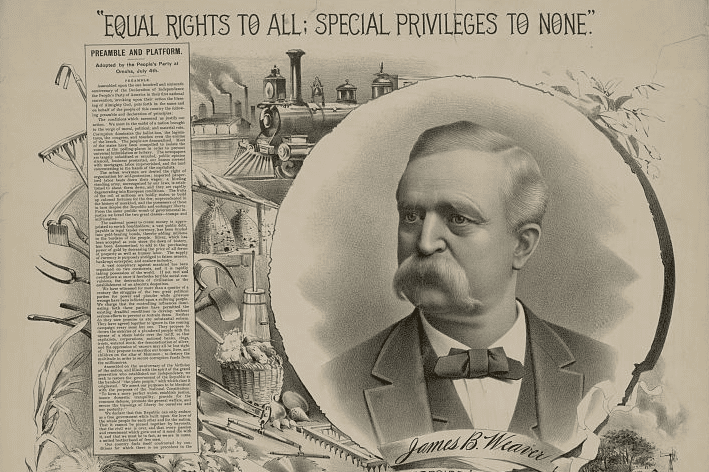
COLLAPSE IN THE LONDON STOCK EXCHANGE
Economists say Berlin, Vienna and Paris soon to follow
-From the Washington Post on the 3rd of May

GOLD RESERVES RUN DRY!
SECRETARY WEAVER ASKS CONGRESS TO CONSIDER SILVER AS AN ALTERNATIVE
-From the New York Times on the 12th of May
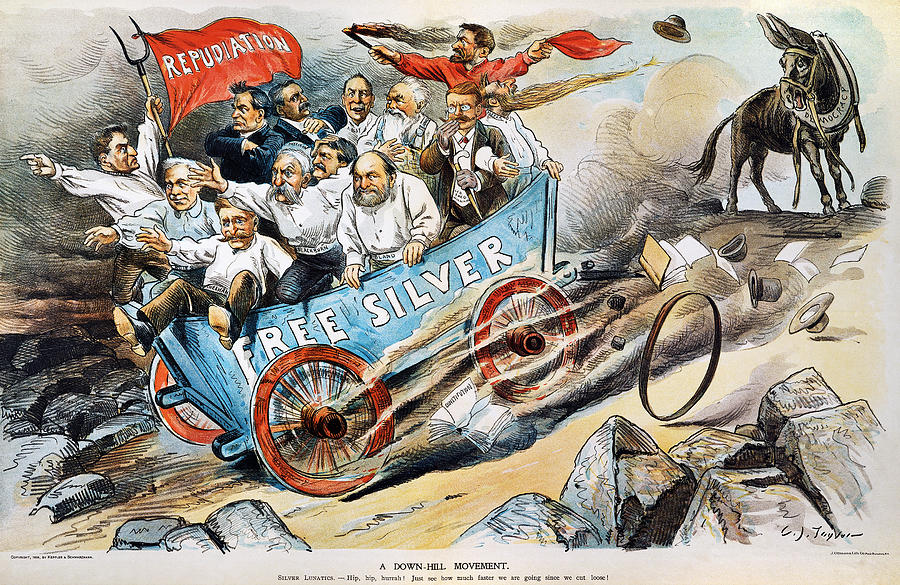
BUSINESS BAILS OUT GARFIELD!
Mr. JP Morgan LENDS MILLIONS to the Treasury
-From the Philadelphia Times on the 23rd of May

SILVER BILL STAGNATES IN CONGRESS, REED ALLEGES REPUBLICAN SABOTAGE
Democrats allege they had predicted the crisis
-From the New York Times on the 5th of June
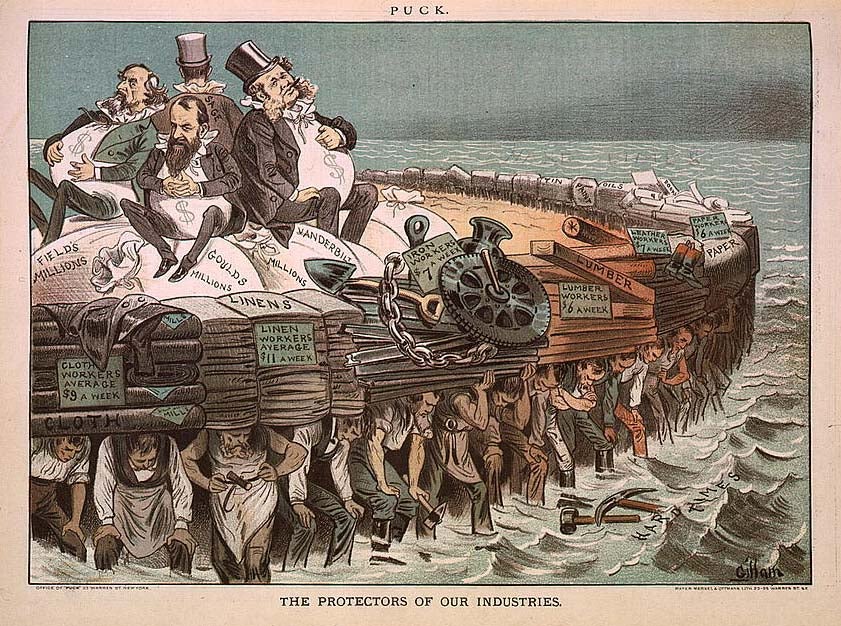
CONGRESSIONAL RESHUFFLE CAMERON IS OUT IN THE REPUBLICAN CAUCUS
-From the Washington Post on the 11th of June

PURGE IN CONGRESS, REPUBLICAN RESHUFFLE CHAMPIONED BY MODERATES
Secretary Hayes and Weaver at odds in the cabinet after Weaver condemns the anti populist reshuffle
-From the Washington Post on the 28th of June
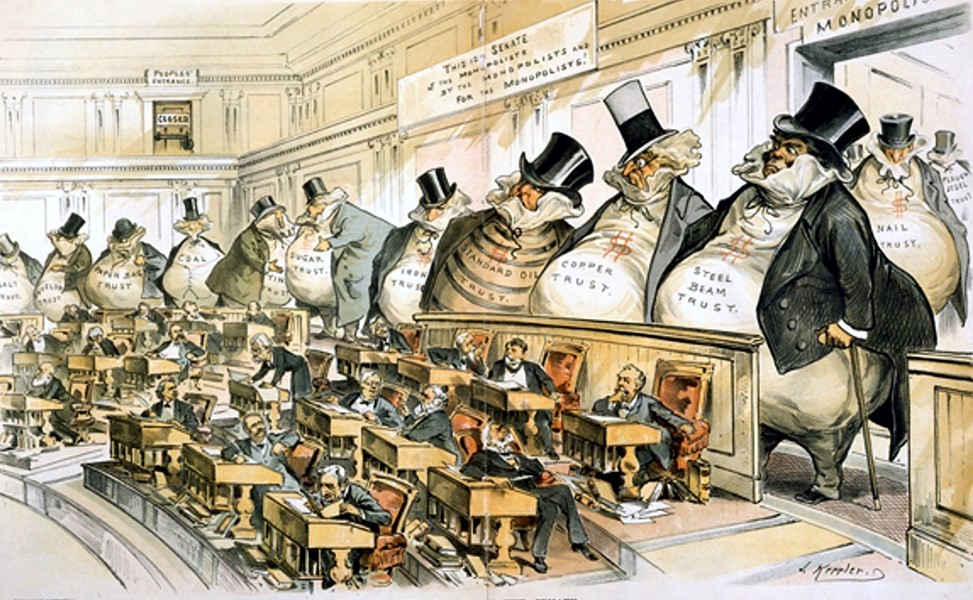
4TH OF JULY, GONE AWRY!
Hundreds of Steel Workers walked out of Carnegie Steel Plant in Ohio, asking for a day off on Independence Day. Carnegie mercenaries violently dispatch them. 16 dead.
-From the Cleveland Sun on the 5th of July

ANTI-MONOPOLY ACT ENTERS THE HOUSE FLOOR, FACES HEAVY LIBERAL OPPOSITION
Democrats support the bill with fervor, Republicans stay quiet
-From the Washington Post on the 10th of July
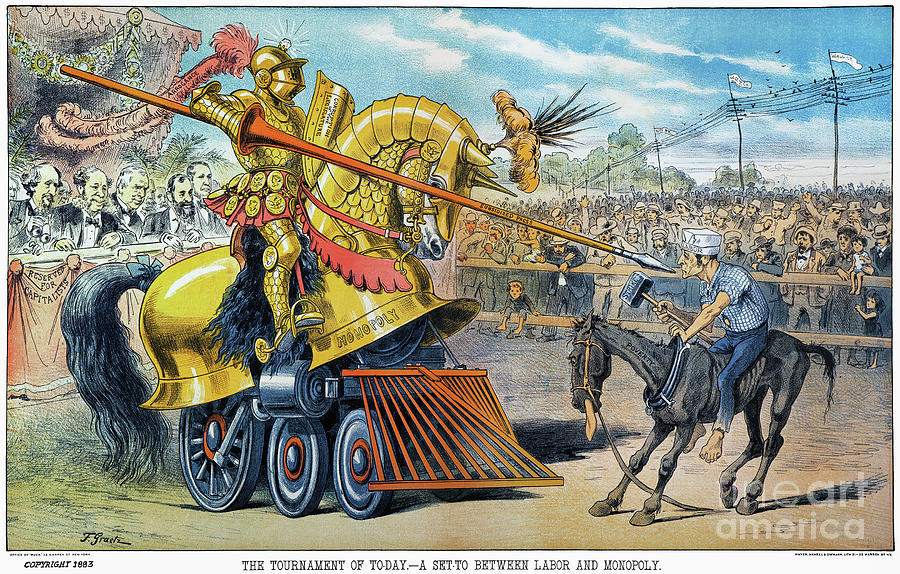
THOMAS ANTI-TRUST ACT FAILS IN THE HOUSE! FREEDMEN VOTE IT DOWN!
Was Black Gold involved?
-From the Washington Post on the 13th of July
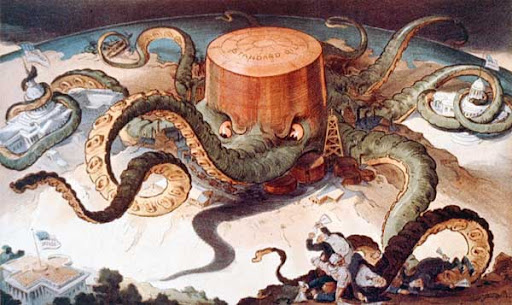
WEAVER SET TO RESIGN!
'The Administration and I disagree too violently'
-From the New York Times on the 1st of August

POSTMASTER LAFOLLETE TO FOLLOW WEAVER
-From the New York Times on the 4th of August

REPUBLICAN POPULISTS RAPIDLY BEGIN TO JUMP SHIP IN CONGRESS, INDEPENDENT FACTION RISES!
-From the New York Times on the 16th of August
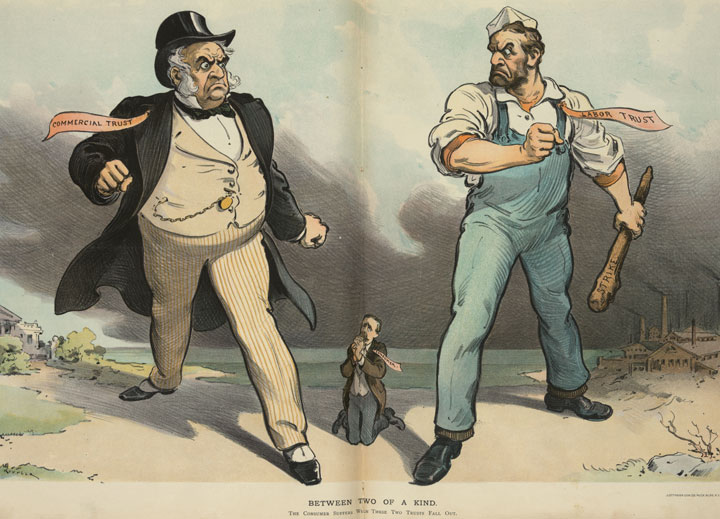
GARFIELD URGES UNITY! PROMISES RENEWED ANTI-TRUST ACT!
The President has made no mention on any bimetalist reforms
-From the New York Times on the 24th of August
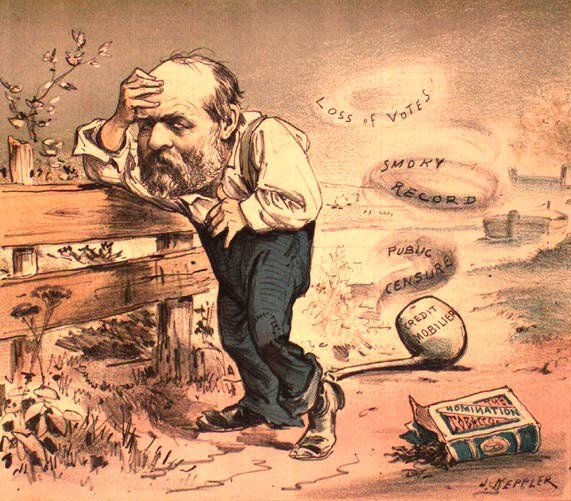
RAIL WORKERS TRADE UNION TO GO ON STRIKE DEMANDING LIVING WAGE
How will this affect the depression? What affect will this have on the election? What now?
-From the Chicago Tribune on the 2nd of September
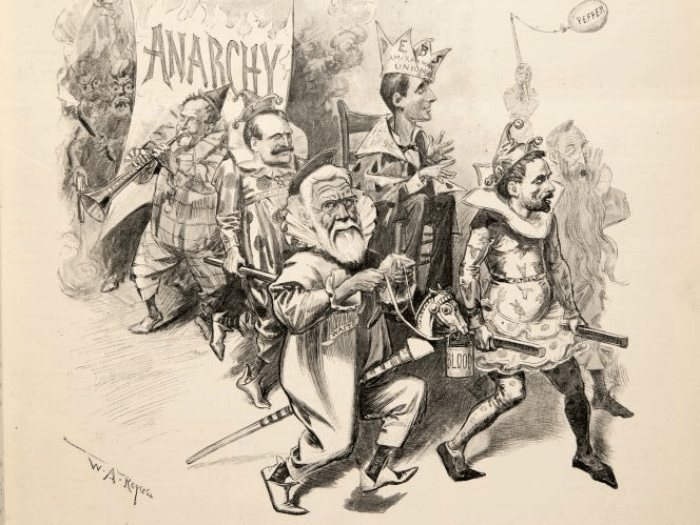
ASSEMBLYMAN FROM INDIANA LEADING THE STRIKE, INDIANA LEGISLATURE MOVES TO CENSURE!
Young Assemblyman Mr. Eugene Debs is to be censured and possibly expelled from the Indiana Legislature
-From the Chicago Tribune on the 8th of September

-
NEXT CHAPTER WILL BE ON THE MIDTERMS! Feel free to ask questions if you are confused at all! Or give any feedback!
MARKET IN FREE FALL
RUSH ON THE BANKS!
-From the New York Times on the 5th of April

SECRETARY WINDOM TO RESIGN
"I have failed the people, I shall not allow the President to fall to due my loss"
-From the New York Times on the 19th of April

WEAVER: NEW TREASURY SECRETARY
PRESIDENT VOWS TO END THE CHAOS
-From the Boston Tribune on the 22nd of April

COLLAPSE IN THE LONDON STOCK EXCHANGE
Economists say Berlin, Vienna and Paris soon to follow
-From the Washington Post on the 3rd of May

GOLD RESERVES RUN DRY!
SECRETARY WEAVER ASKS CONGRESS TO CONSIDER SILVER AS AN ALTERNATIVE
-From the New York Times on the 12th of May

BUSINESS BAILS OUT GARFIELD!
Mr. JP Morgan LENDS MILLIONS to the Treasury
-From the Philadelphia Times on the 23rd of May

SILVER BILL STAGNATES IN CONGRESS, REED ALLEGES REPUBLICAN SABOTAGE
Democrats allege they had predicted the crisis
-From the New York Times on the 5th of June

CONGRESSIONAL RESHUFFLE CAMERON IS OUT IN THE REPUBLICAN CAUCUS
-From the Washington Post on the 11th of June

PURGE IN CONGRESS, REPUBLICAN RESHUFFLE CHAMPIONED BY MODERATES
Secretary Hayes and Weaver at odds in the cabinet after Weaver condemns the anti populist reshuffle
-From the Washington Post on the 28th of June

4TH OF JULY, GONE AWRY!
Hundreds of Steel Workers walked out of Carnegie Steel Plant in Ohio, asking for a day off on Independence Day. Carnegie mercenaries violently dispatch them. 16 dead.
-From the Cleveland Sun on the 5th of July

ANTI-MONOPOLY ACT ENTERS THE HOUSE FLOOR, FACES HEAVY LIBERAL OPPOSITION
Democrats support the bill with fervor, Republicans stay quiet
-From the Washington Post on the 10th of July

THOMAS ANTI-TRUST ACT FAILS IN THE HOUSE! FREEDMEN VOTE IT DOWN!
Was Black Gold involved?
-From the Washington Post on the 13th of July
WEAVER SET TO RESIGN!
'The Administration and I disagree too violently'
-From the New York Times on the 1st of August

POSTMASTER LAFOLLETE TO FOLLOW WEAVER
-From the New York Times on the 4th of August

REPUBLICAN POPULISTS RAPIDLY BEGIN TO JUMP SHIP IN CONGRESS, INDEPENDENT FACTION RISES!
-From the New York Times on the 16th of August

GARFIELD URGES UNITY! PROMISES RENEWED ANTI-TRUST ACT!
The President has made no mention on any bimetalist reforms
-From the New York Times on the 24th of August

RAIL WORKERS TRADE UNION TO GO ON STRIKE DEMANDING LIVING WAGE
How will this affect the depression? What affect will this have on the election? What now?
-From the Chicago Tribune on the 2nd of September

ASSEMBLYMAN FROM INDIANA LEADING THE STRIKE, INDIANA LEGISLATURE MOVES TO CENSURE!
Young Assemblyman Mr. Eugene Debs is to be censured and possibly expelled from the Indiana Legislature
-From the Chicago Tribune on the 8th of September

-
NEXT CHAPTER WILL BE ON THE MIDTERMS! Feel free to ask questions if you are confused at all! Or give any feedback!
Last edited:
The country is praying for some damn normalcy. Perhaps the calamity did place a curse on the nation...Thing are getting crazy, I love it

For the record
Carnegie- Liberal donor
JP Morgan- Supporter of the business Republicans and literally has the White House in his debt.
Rockefeller- Supporter of Business minded Republicans, also deals with Liberals
Freedman and Langley- Both heavy Freedmen Party donors
Gould- Liberal Donor
Carnegie- Liberal donor
JP Morgan- Supporter of the business Republicans and literally has the White House in his debt.
Rockefeller- Supporter of Business minded Republicans, also deals with Liberals
Freedman and Langley- Both heavy Freedmen Party donors
Gould- Liberal Donor
Democrats will be dead, or seriously losing voters/members, by the end of this TL. The Republicans and Liberals are more able to handle internal battles/reform movements when compared to the Democrats IMO.I wonder, of the Democrats and Republicans, do you think either of those parties will be dead by the TL end? And if so, which one?
Hoping to get the midterm chapter out late tomorrow! (I've been busy).
Then the new states chapter and the final touches on the second term on Friday
and get the vignettes and nominations going over the weekend!
If you have any questions so far or about the coming chapters feel free to ask!
Then the new states chapter and the final touches on the second term on Friday
and get the vignettes and nominations going over the weekend!
If you have any questions so far or about the coming chapters feel free to ask!
Share: